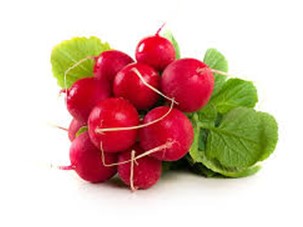Here's a phrase I will always be happy to say: it is drizzling outside again.
Outside smells of wet leaves and the neighbors’ heating, the trees are standing all black and wet and the air is clear (except for the smell of the neighbors’ heating, but for me it is part of the smells of winter).
Next to my front door, a family of happy snails are out for an outing, and next to the compost pile the worms lay in the small puddles formed in the mud.
It is true that winter is the annual time for gathering indoors, when the sky is gray and the natural distancing that comes from the desire to snuggle under the blanket, which is sometimes accompanied by a slight depression (sometimes I feel the difference, and how depressed I was only when a sunny spring day comes along, sometime in March bringing with it the opposite mood).
But, nevertheless, there are things that bring with them thoroughpleasure, from the simplest things, only in winter: the heat that the baking oven spreads throughout the kitchen (when it's really cold outside, I develop a close relationship with it), the pleasure of sipping a hot cup while listening to the rain or coming inside from the cold and taking off your wet clothes.
There isalso, by the way, a sentence that I will probably never be happy to say: lockdown again. Although it is good and pleasant and nice to cuddle up at home, this lockdown is unpleasant.
I will just remind you, that with or without a lockdown – the store is at your service to order whatever you want, to make you feel better (and keep you healthy!) also by delivery.
It is especially suitable for those who do not want to make their way to the store for any reason (although we are always happy to see you), for those who are in quarantine, for those who want to make someone else in quarantinehappy, and also those who are not in quarantine but still want to enjoy some delicious fresh, organic and crunchy vegetables.
Last time I wrote about Hanukkah, and light and heat, and I introduced the olive oil that is totally the star of this holiday (I am willing to eat sufganiyot and latkes, made from almost any vegetable, long after Hanukkah and almost until Passover).
Olive oil also relates to the simple things – a small saucer filled with good olive oil, with a drop of balsamic vinegar in it, and a piece of fresh ciabatta just out of the oven can cause me great pleasure no less than a complex dish in anexcellent restaurant.
At some point in my life, a friend told me that she enjoys treating olive oil like a good wine – exploring interesting producers, tasting oil from different species of olives, visiting oil mills during the harvest season to taste the fresh oil. And since then – even for me the olive oil has become something more than a basic dressing for salad, and I enjoy checking and tasting and rolling the taste of species varieties on my palate.
In the Middle East, olive oil can be found in every household from long long ago: if we go back chronologically, today the leaves of the olive tree are part of the state symbol, in ancient times olive oil was used as the main source of light, and in even more ancient times it was used to perform the anointing ceremony of King and Messiah.
Olive oil has several significant health benefits due to its nutritional composition: the amount of unsaturated acids in it that contribute to balancing between the “good” and “bad” cholesterols, the amount of acids that are optimal for the body's ability to absorb calcium, antioxidants that increase the body's resistance to cancerous cell development, and also – its great taste.
If you too want to develop a culinary curiosity for olive oil, and taste different varieties, you should be acquainted with the main varieties and their characteristics in terms of the abundance of flavors they offer: the Syrian variety is probably the most common, with a rich and aromatic taste that also tends to be a bit bitter;
Other varieties that are characterized by a dominant taste and tend to the bitter side are the Askel and Picholine. Both the Nabali Baladi and the Nabali Muhsin on the other hand have more delicate flavors, and the latter is even a little sweeter to my taste; The Korneiki, which originates from Greece, produces an intriguing greenish olive oil with a delicate flavor, and the Spanish Arbequinais also characterized by a delicate flavor with no signs of bitterness.
This richness and variety make it possible to choose the olive oil that will best suit the salad (or even different kinds of salad), the sauce, and also the appropriate one to simply accompany a good bread. Tell me which one you prefer!
Yours.
The Garden’s team
Forecast:
In the ORGANIC vegetable baskets we expect (draft only):
Cucumber
Tomatoes
Lettuce
Potato
Cabbage
Eggplant
Celery
Swiss Chard
Parsley
The Large organic vegetable baskets also include:
Spinach
Purple sweet potatoe
Coriander
In the ORGANIC fruit baskets (NEW – Increased variety, price – 70 Shekels)
Oranges
Grapefruit
Banana
Clementine
Pomelo
The large ORGANIC fruit baskets also include: ( NEW – Increased variety, price -100 Shekels)
Lemon
Papaya
Red grapefruit
The ORGANIC Green Basket:
Swiis Chard
A kind of lettuce
Kale
Dill
Green onion
Sprouts
Spinach
NEW – The ORGANIC Basket for couples (price – 150 shekels):
Cucumber
Tomato
Lettuce
Potato
Eggplant
Pepper
Onion
Parsley
Swiss Chard
Beet
Sweet potatoe
Coriander
Beet
Oranges
Lemon
Sweetie













